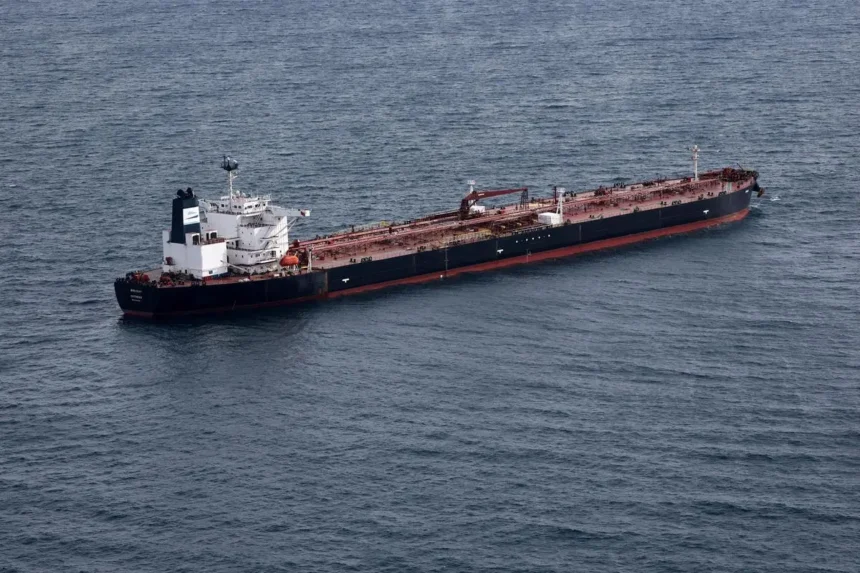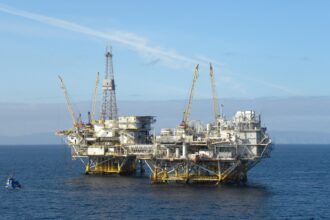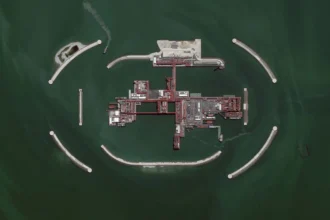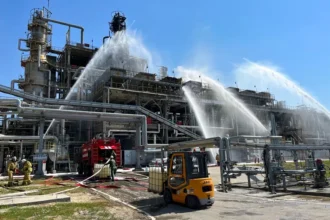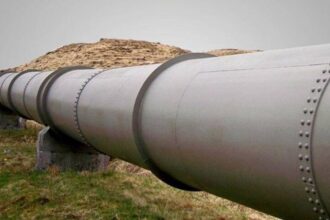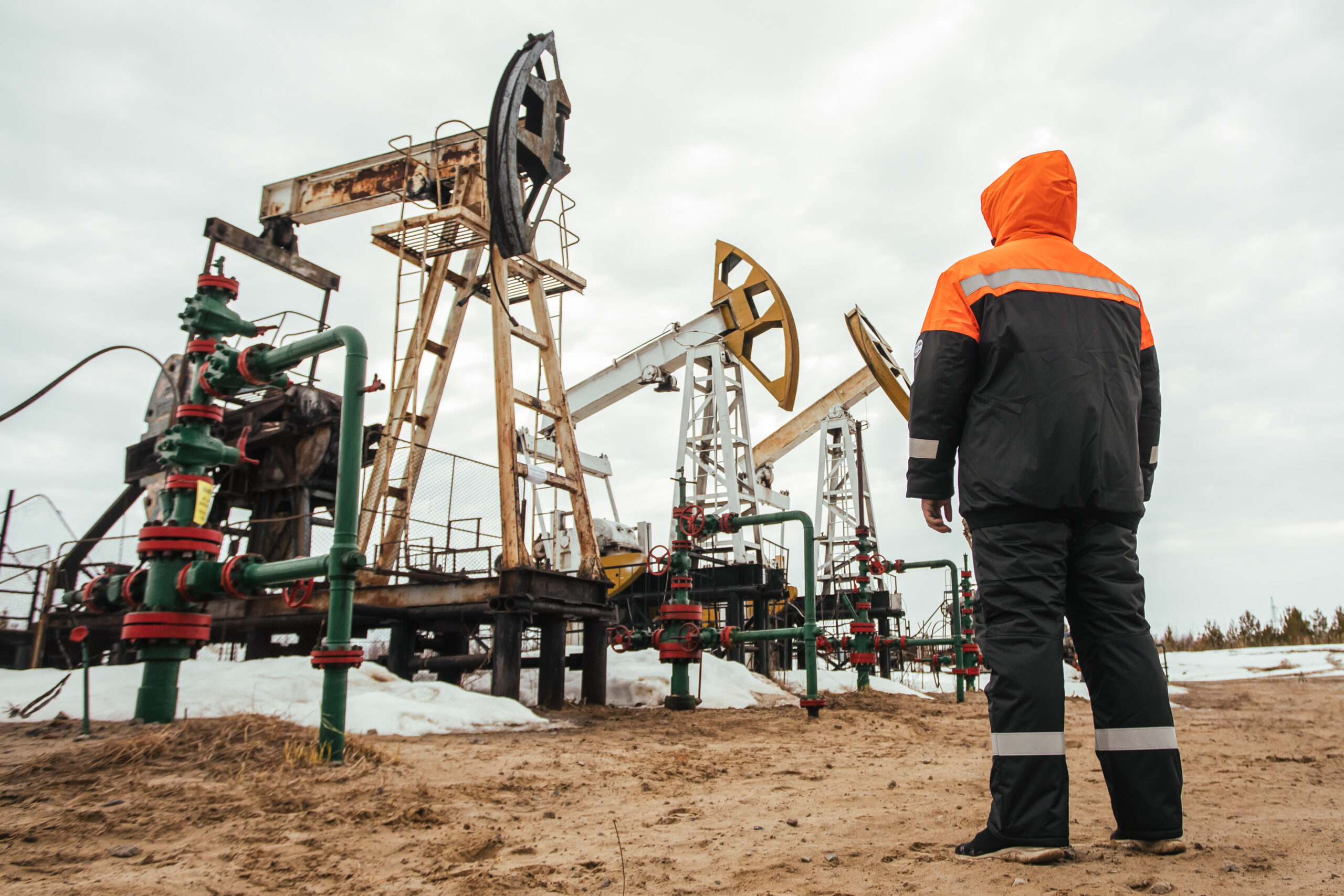A Russian oil tanker was set ablaze in the Black Sea following a suspected Ukrainian drone strike, in what marks the latest escalation in a rapidly intensifying maritime conflict that threatens vital global energy routes. The incident, which occurred late Friday night near the Kerch Strait — a critical channel linking the Black Sea and the Sea of Azov — has sent shockwaves through regional markets and heightened fears of a broader confrontation between Russia and Ukraine beyond the frontlines of the land war.
According to Russian maritime authorities, the vessel, identified as the Sig, sustained heavy damage after being hit by an unmanned surface drone packed with explosives. The attack caused a massive fire on board, forcing the crew to evacuate. Preliminary reports suggest there were no fatalities, though several sailors were treated for burns and smoke inhalation. The tanker was reportedly carrying fuel intended for Russian military operations, a detail that, if confirmed, could explain its targeting.
“Emergency response teams have managed to contain the fire, but the ship has suffered significant damage,” said a spokesperson for Russia’s Transport Ministry. “An investigation is underway to determine the full extent of the attack and the identity of those responsible.”
A New Phase in the Maritime War
The strike on the Sig represents a major escalation in Ukraine’s campaign against Russia’s naval and logistical infrastructure, which has expanded dramatically over the past year. The Black Sea — once a heavily controlled zone by Moscow’s fleet — has become an increasingly contested space as Kyiv steps up its use of long-range missiles and maritime drones to disrupt Russian supply lines.
Analysts say the attack reflects Kyiv’s growing confidence in its asymmetric warfare capabilities. With limited naval assets, Ukraine has turned to domestically developed unmanned systems, using them to target high-value Russian vessels, ports, and oil infrastructure. These operations aim to cripple Russia’s logistics network and erode its ability to project power across the Black Sea region.
“This is not just a tactical strike; it’s a strategic message,” said a Western defense official familiar with the incident. “Ukraine is demonstrating that no Russian ship is safe — not even in waters Moscow considers secure.”
The Black Sea has become a flashpoint in recent months, with repeated attacks on Russian oil facilities, warships, and supply tankers. In response, Russia has intensified air and naval patrols, deployed additional anti-drone systems, and warned that it may retaliate by targeting Ukrainian ports or Western vessels supplying Kyiv.
Moscow Blames Kyiv, Warns of Retaliation
The Kremlin quickly condemned the attack, accusing Ukraine of “terrorist actions against civilian infrastructure.”Russian state media framed the strike as an assault not only on its economy but on global energy stability, warning that such operations risk “irreversible consequences.”
“This reckless aggression threatens freedom of navigation and international energy security,” said Russian Foreign Ministry spokeswoman Maria Zakharova. “Ukraine, with Western support, continues to escalate the conflict beyond its borders.”
Moscow has vowed to respond “proportionally,” with Russian military sources suggesting that new operations against Ukrainian port cities — including Odesa and Mykolaiv — could follow in retaliation. Satellite imagery has already shown increased Russian naval movements near Crimea, suggesting possible preparation for further strikes.
Kyiv Defends the Attack as Self-Defense
Ukrainian officials, while stopping short of formally claiming responsibility, hinted that the strike was part of a broader campaign to defend national sovereignty and disrupt Russia’s capacity to wage war.
“Every vessel that fuels the Russian war machine is a legitimate military target,” said a senior Ukrainian defense official on condition of anonymity. “We will continue to act against those who enable the invasion of our land — whether on land or at sea.”
In recent weeks, Ukraine has intensified its drone and missile assaults on Russian energy infrastructure, including oil refineries, storage depots, and naval facilities in Crimea. These attacks have caused measurable disruptions to Russian military logistics and export operations, though they also risk escalating into a wider maritime conflict that could draw in NATO member states with vessels operating in the region.
Global Implications and Energy Market Jitters
The incident has triggered fresh volatility in global oil markets, as traders fear potential disruptions to shipping lanes in the Black Sea — a vital conduit for Russian, Kazakh, and Azerbaijani crude exports. Oil prices briefly surged following reports of the attack, reflecting concerns that the conflict could spill over into commercial maritime traffic.
The Black Sea is one of the world’s most strategically significant waterways, connecting Russia and Eastern Europe to global markets via the Bosporus and Dardanelles Straits. Any sustained disruption could have ripple effects on global energy supply, particularly at a time when oil markets are already under strain due to Middle East tensions and OPEC+ output restrictions.
“This latest attack underscores just how fragile global energy logistics have become,” said an analyst with Energy Aspects. “The risk premium for oil will continue to rise as long as maritime infrastructure in the Black Sea remains a target.”
Insurance companies have also raised premiums for vessels operating in or near the conflict zone, and some commercial operators are reportedly rerouting ships away from Russian ports on the eastern Black Sea coast.
The Broader Strategic Context
Military experts see the attack as part of Ukraine’s evolving maritime strategy, aimed at undermining Russia’s control over key supply routes and isolating Crimea from mainland logistical support. The Black Sea fleet — long a symbol of Russian naval dominance — has suffered multiple high-profile losses since the sinking of the Moskva cruiser in 2022.
Since then, Ukraine has conducted a series of strikes using sea drones, modified long-range missiles, and sabotage operations, demonstrating remarkable innovation under resource constraints. The use of unmanned surface vessels (USVs) in particular has given Kyiv a low-cost, high-impact tool to strike deep into enemy-controlled waters.
“These attacks are changing naval warfare,” said a former NATO commander. “Ukraine has rewritten the playbook — showing how a smaller nation can use technology and intelligence to offset traditional military inferiority.”
For Russia, the growing threat to its naval and energy assets poses a significant operational and psychological challenge. The attacks not only disrupt logistics but also undermine Moscow’s narrative of control and invulnerability, particularly in regions it annexed or occupies.
Escalation Risks on the Horizon
The incident raises concerns of a potential escalation beyond Ukraine’s borders, as Russia weighs how to respond. While full-scale retaliation against NATO ships is unlikely, increased Russian naval aggression in the Black Sea could put regional security at risk, particularly for Romania, Bulgaria, and Turkey — all NATO members with direct maritime access.
Turkey, which controls the Bosporus Strait, has called for restraint and reiterated the importance of maintaining the Montreux Convention, which regulates military access to the Black Sea. Ankara has been walking a fine line between supporting Ukraine diplomatically and maintaining economic ties with Russia.
Western intelligence agencies are reportedly monitoring Russian fleet movements closely, wary that Moscow could use the tanker incident as a pretext for intensifying strikes on Ukraine’s grain and energy infrastructure — vital exports that sustain its wartime economy.
A Dangerous New Normal
The attack on the Sig underscores how the Black Sea has transformed from a regional trade artery into one of the world’s most volatile conflict zones. As both sides rely increasingly on drones, hybrid tactics, and maritime strikes, the line between military and civilian targets continues to blur — raising risks not just for combatants, but for global commerce and energy stability.
“This is no longer just a war fought on land,” said a European security analyst. “The battles of the Black Sea are redefining the boundaries of modern warfare, with consequences that reach far beyond Eastern Europe.”
As fires aboard the Russian tanker die down, one thing is clear: the Black Sea is now an active front in a conflict that shows no sign of slowing. And as Ukraine’s bold tactics collide with Russia’s resolve to retaliate, the world watches anxiously — aware that every drone strike or naval clash in these waters could have consequences far beyond the horizon.

